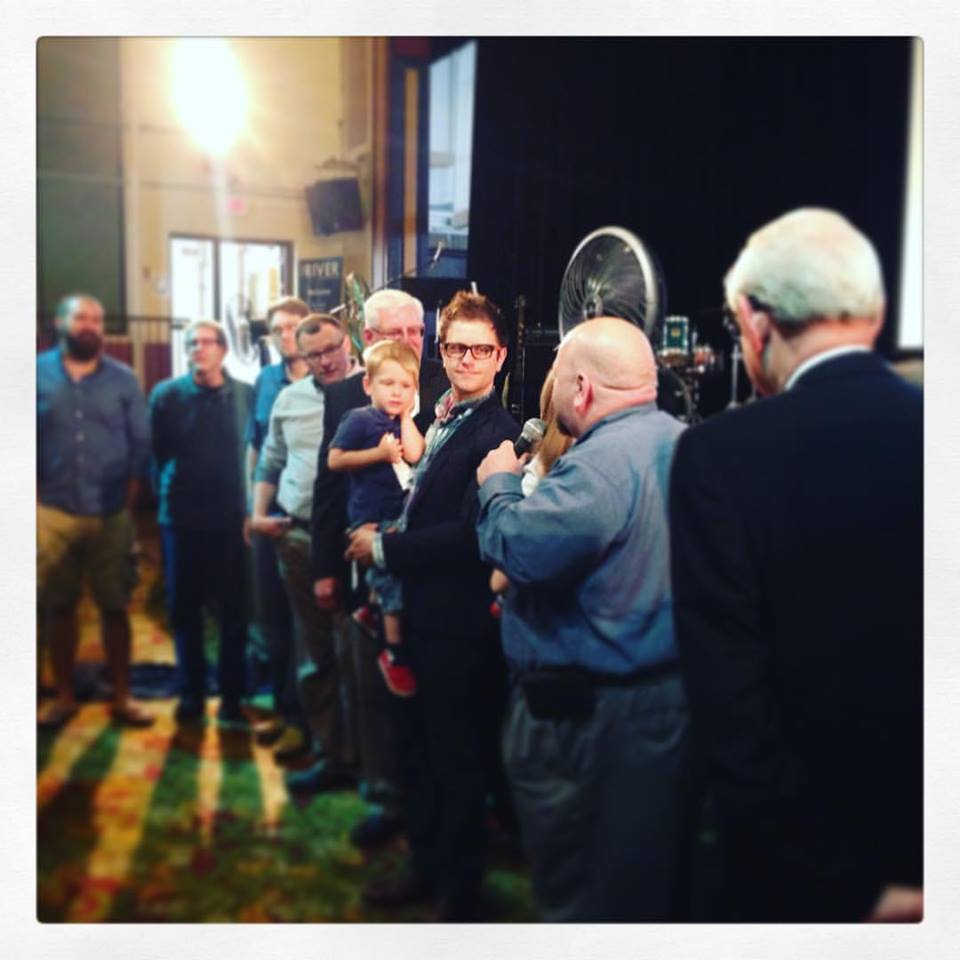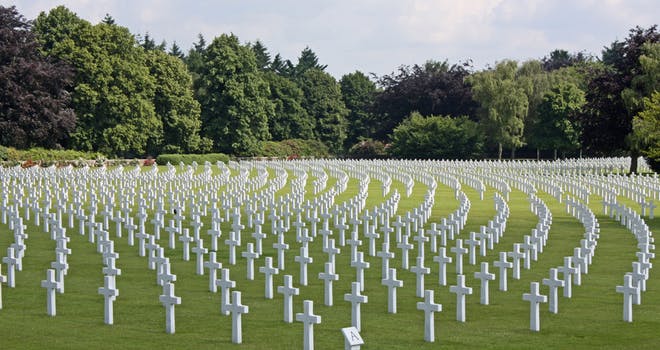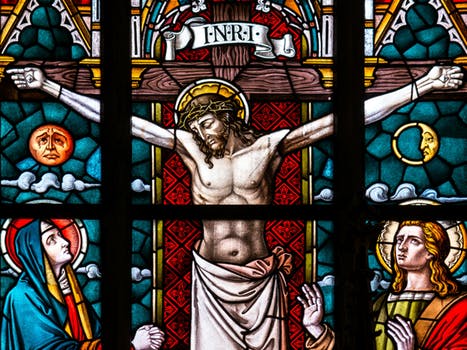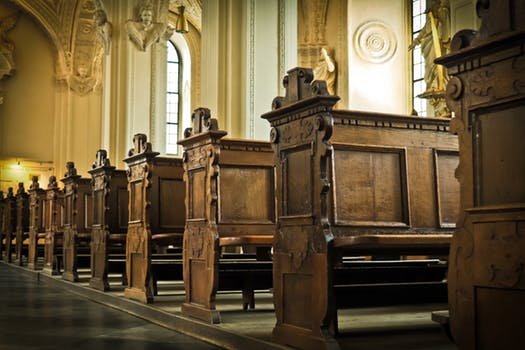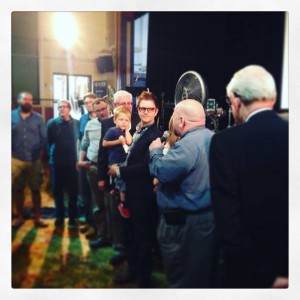 This past Sunday we were blessed to host the ordination service for Chris O’Dell at The River. Chris and his wife Jamie were part of The River in the early days and then left for ministry in Taiwan. They serve at a coffee shop/church called The Aroma. You can find out more about their ministry and how to partner with them on The Aroma Website. Chris and Jamie and their boys continue to be part of The River extended family and we partner with them as they are ministering in Taipei. It is a great partnership considering our similar kind of ministry focus at Dunn Bros. here in Chaska. This is a way for us to be fulfilling Christ’s Great Commission for us in Matthew 28:19-20 where he says, “Go therefore and make disciples of all nations, baptizing them in the name of the Father and of the Son and of the Holy Spirit, teaching them to observe all that I have commanded you. And behold, I am with you always, to the end of the age.” We are in the process of making disciples here in Chaska, MN and at the same time we are partnering with them in making disciples among people we may never meet this side of Heaven as we partner with Chris and Jamie in Taiwan. Please join us in supporting them. Check out The Aroma Website for more information.
This past Sunday we were blessed to host the ordination service for Chris O’Dell at The River. Chris and his wife Jamie were part of The River in the early days and then left for ministry in Taiwan. They serve at a coffee shop/church called The Aroma. You can find out more about their ministry and how to partner with them on The Aroma Website. Chris and Jamie and their boys continue to be part of The River extended family and we partner with them as they are ministering in Taipei. It is a great partnership considering our similar kind of ministry focus at Dunn Bros. here in Chaska. This is a way for us to be fulfilling Christ’s Great Commission for us in Matthew 28:19-20 where he says, “Go therefore and make disciples of all nations, baptizing them in the name of the Father and of the Son and of the Holy Spirit, teaching them to observe all that I have commanded you. And behold, I am with you always, to the end of the age.” We are in the process of making disciples here in Chaska, MN and at the same time we are partnering with them in making disciples among people we may never meet this side of Heaven as we partner with Chris and Jamie in Taiwan. Please join us in supporting them. Check out The Aroma Website for more information.
Does God Contradict Himself?
 I was recently asked the question, “why does God contradict himself?” This person was focusing on how God says, “thou shalt not kill,” but then there were lots of times in the Old Testament where he called for whole cities to be wiped out, which seems a lot like genocide. Have you ever struggled to put together something you believe about God with the way you see him act in Scripture?
I was recently asked the question, “why does God contradict himself?” This person was focusing on how God says, “thou shalt not kill,” but then there were lots of times in the Old Testament where he called for whole cities to be wiped out, which seems a lot like genocide. Have you ever struggled to put together something you believe about God with the way you see him act in Scripture?
Before I consider the specific example, I think it is important to take a look at the big picture. In 2 Timothy 2 Paul is challenging and encouraging his young apprentice in his pastoral role, and he wraps up the passage with an interesting quote in verses 11-13: 11 The saying is trustworthy, for: If we have died with him, we will also live with him; 12 if we endure, we will also reign with him; if we deny him, he also will deny us; 13 if we are faithless, he remains faithful— for he cannot deny himself.
So Paul seems to be quoting something here, but it is not Scripture. Some scholars believe it was a saying or possibly even a hymn within the early church. We don’t know. It seems to connect with the previous two verses where Paul talked about his own personal suffering in prison.
The first half of this statement connects with the hope of resurrection that awaits us as Christians. Those who believe in Jesus, have had their sins forgiven, are brought back to a right relationship with God and can look forward to eternal life in Heaven.
The quote then moves on to those who have denied Christ. This word is sometimes translated disown and suggests a deliberate choice to not follow Jesus as Lord. So Paul is saying that if we deny Christ, that he will deny us. If we don’t accept him, he won’t accept us. Now that sounds harsh, but God has offered his free gift of salvation to the whole world, and those who deny him or turn their backs on that free gift will also be denied. Those who accept Christ will be accepted, but if you want nothing to do with him, then that is your choice.
But then Paul’s quote moves on to one final point that I think brings out an important characteristic about God that is good for us to consider regarding our question for today.
Paul talks about being faithless. That doesn’t mean to not have faith, it means to be unworthy of faith. It means not doing what would be considered faithful. We are faithless a lot. We mess up and don’t keep our end of our covenant with God. We go our own way, do our own thing, and faithlessly fail to live out what we say we believe.
But notice that this quote says that even though we are faithless God remains faithful. That means he always keeps up his side of the covenant. And Paul points out that God remains faithful because he cannot deny himself.
This means that God is who he is, all the time. We talk about how God can do anything, but one thing he can’t do is something that is contrary to his nature. Who God is, is who God is. He will always act in a way that is true to his nature.
So what does that have to do with our question for today? It means that God doesn’t contradict himself. So we need to take what we know to be true about God and let that influence how we understand the things that don’t make sense.
Now, I understand that actions need to back up words. I don’t like hypocrites any more than you do. Sometimes people say one thing and do the opposite and so we tend to judge people more by what they do, than by who they tell us they are. That is understandable, but it is also not entirely informed. Sometimes we might see someone do something and misconstrue what is really going on.
We see this all the time in situation comedies on television. They are great at creating circumstances where someone sees someone else doing something but only gets part of the story and it leads to a whole bunch of funny outcomes.
Allowing someone’s actions to dictate what we believe about them is ok, but it is not complete, because we may not really understand what is going on. If we know their character and we see something that doesn’t fit with that character, we are probably going to give them the benefit of the doubt, because we know them. We should do the same with God.
I believe that if we hold on to what God says about who he is in Scripture, it is okay to wrestle with the things that don’t make sense. But we have to do that while maintaining a firm grasp on what God has already revealed to us about himself.
So how about we start with what we see here in 2 Timothy that God does not deny himself. He will always act in a way that is consistent with his nature. We also know from James 1 that God is the same, yesterday, today and forever and does not change like shifting shadows. And in Numbers we are reminded that God does not lie. So if we believe all of that, then we can hold on to those truths and wrestle with any apparent contradictions we think we see.
So let’s apply that to our earlier example of the apparent genocide we see God commanding in the Old Testament compared to the command to not kill in the 10 commandments.
There is not some simple, easy answer, but let me first point out that technically speaking, the Hebrew word in the 10 commandments could be translated either as kill or murder. And there is a difference. Killing in a war or executing a person for crimes he has committed or killing someone while defending yourself from someone are very different than murdering someone in cold blood. On the flip side, we could look at the word murder referring to unlawful killing. With that in mind, even if we are against all forms of killing we would recognize the difference between killing and murder. So comparing what we see God commanding the armies of Israel to do in a war is not the same thing as committing murder which is probably what the 10 commandments are referring to.
But when God has the Israelites wipe out an entire town, what do we do that? Is God really commanding genocide? That is a tougher question, but if I hold on to what I know to be true about God I can wrestle with that question as well.
In Exodus 34 God declared to Moses who he is and he said this about himself, “The Lord, the Lord, a God merciful and gracious, slow to anger, and abounding in steadfast love and faithfulness, 7 keeping steadfast love for thousands,[a] forgiving iniquity and transgression and sin, but who will by no means clear the guilty, visiting the iniquity of the fathers on the children and the children’s children, to the third and the fourth generation.
In that description I see a God who is loving, merciful and gracious, and yet also holy and just and aggressive in his dealings with sin. Those are both facets of his character. I think sometimes we only want to think about God as being loving, merciful and gracious. But that is not a complete picture of God. It is only in light of his holiness and justness that we can real understand his love and mercy.
God could have wiped us all off the face of this world because of our stubborn refusal to obey him and he would have been totally justified. What should amaze us more is not when he chooses to show wrath, but when he chooses to show mercy, because we all deserve death.
Now I know that is a very imperfect explanation, but I think we also need to consider that the Old Testament was a long time ago and it was a very different time in the life of man, that we do not understand. Things have changed a lot over the history of man, through the dark ages and medieval times and then on to where we are today. And while God doesn’t change, man does and therefore God’s dealings with man, while coming from the same character, look different depending on our viewpoint. So ultimately I believe God is who he says he is and that he will not contradict himself, and I continue to trust in him even if there are some of the things that I do not understand.
Why Blood?
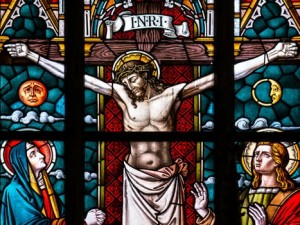 Have you ever asked yourself why there is so much of a focus on blood in the Bible? Between the animal sacrifices in the Old Testament and Jesus’ death in the New Testament there is a lot of blood. In church we read about the blood, we talk about the blood and we even sing about the blood. Some people probably question why the Church seems so infatuated with blood.
Have you ever asked yourself why there is so much of a focus on blood in the Bible? Between the animal sacrifices in the Old Testament and Jesus’ death in the New Testament there is a lot of blood. In church we read about the blood, we talk about the blood and we even sing about the blood. Some people probably question why the Church seems so infatuated with blood.
In chapter 9 of the book of Hebrews the author spends a lot of time talking about blood and does a good job of connecting the blood we read about with Old Testament sacrifices to the blood we read about with the story of Jesus on the cross.
First, he reminds his readers of the Mosaic covenant that existed in the Old Testament. This was a covenant God had with Israel that they would be his people and he would be their God. It consisted of a system of rules like the 10 commandments and others that taught them how to live and what it looks like to follow God. This covenant also included animal sacrifices for them to offer when they messed up.
The system was not bad, but it was temporary, pointing forward to what would be completed in Christ. And that is what the author is focusing on throughout the chapter.
He talks about the tabernacle, which was set aside as the place for God to dwell with his people. And that tabernacle included the Most Holy Place, which was located behind a curtain that separated it from the rest of the tabernacle. In this Most Holy Place was the Ark of the Covenant which represented the very presence of God. Nobody went behind that curtain except the high priest and he went back there only once a year on Yom Kippur, the Day of Atonement. On that day he would make atonement for his sins and the sins of the community by way of animal sacrifices and sprinkling the blood on the cover of the ark.
In Hebrews 9:9 we find out that this was symbolic. The word used for symbol is a word that means comparison, from which we get our word parable. And then verse 10 ends with the phrase, “until the time of reformation.” That is not referring to the reformation time period in history, the word means to set or make right.
So the old covenant was like a symbol of what was to come. It was a system that God put in place that signified repentance and God accepted it as a way of purification. It was a system that was temporary and incomplete but pointed the way to the time things would be set right and become perfect in Christ.
The author of Hebrews then moves on to connect Jesus to that old system of sacrifices. He points out how Jesus became the perfect sacrifice. In the old covenant the sacrifice of animals symbolized cleansing from sin, but in Christ those sins are truly atoned for and there is no further sacrifice necessary.
In verse 15 the author calls Jesus a mediator. Our sin separates us from God, but Jesus came between us and God and made it possible for us to be reconciled. And not just us but everyone, including those who made those sacrifices in the Old Testament.
Notice in verse 16 the word covenant is used and in verse 17 the word will is used. In the original Greek that is actually the same word. The old covenant looked ahead to the death of Jesus, the promise of what was yet to come. Hebrews 9:15 says, “since a death has occurred that redeems them from the transgressions committed under the first covenant.” Jesus completed or perfected what was begun with the first covenant.
The animal sacrifices that were offered in the OT had to be offered again and again. It was not enough for them to just be done once. It was over and over again. But Christ’s sacrifice was complete. What he did on the cross was perfect and atoned for the sins of all people, past, present and future, once for all.
And the author points out at the end of the chapter that Christ is coming again. This same Jesus who died for the sins of the world and rose again is coming back and when he comes he is going to raise all those who believe in him to a new eternal life. That is what we are looking forward to and the way we have access to that new life is through the blood of Jesus Christ.
So that gets us back to the original question, why blood? My answer is, I don’t really know. We can trace animal sacrifice back to the sacrifices of Cain and Abel in the book of Genesis and how the animal sacrifice of Abel was accepted while the fruit and vegetable sacrifice of Cain was not accepted. And some even trace it back to the Garden of Eden when God clothed Adam and Even with animal skins after they sinned and realized they were naked.
But the closest answer I can find is in Leviticus 17:11 where we read: “For the life of the flesh is in the blood, and I have given it for you on the altar to make atonement for your souls, for it is the blood that makes atonement by the life.”
So while that is not an exact answer for why the blood, it does point out the importance of blood. Blood represents life. We need our blood to survive. With the blood sacrifices in the Old Testament it is not like they just took blood from the animals and then set them free. They killed the animals. Using their blood cost them their life.
And the word for atonement means to cover or appease. In the Old Testament the people would sacrifice animals to atone for their sins. They would take one of their animals, that they had raised, or one they had bought with their own money. An animal who had done nothing wrong, and they would sacrifice it to atone for their sin.
It wasn’t literally the blood of the animal that saved them or washed them. Romans 6:23 tells us that the penalty or wages for sin is death, the life of the animal was sacrificed in place of the life of the person. And the life was represented in the blood.
It might seem cruel today, but I think it is important for us to recognize that dealing with sin costs something. We too easily blow off sin today, and it is good for us to recognize that there has always been a cost. Back in the OT they saw that cost. They recognized that an animal would be sacrificed for what they had done.
But we don’t live under the Old Covenant anymore. God made a new covenant with his people when he sent his Son Jesus to this world. Jesus became the perfect completion of the Old Covenant. He died on the cross as a perfect, sinless sacrifice for the sins of the world. His blood covers our sins. And it is important for us to recognize the cost.
Now that we don’t regularly offer an animal as a sacrifice it is easy for us to forget the cost of sin. We take sin lightly and therefore we take grace lightly. We forget how great a price was paid for our sin. We tritely pray “forgive me for this or that mistake that I have made today” as if it is really no big deal.
I may not know exactly why blood, but I do know that it is good for us to remember that sin costs. There is a price that was paid. When we ask for forgiveness for our sins it is not like God says “oh it’s ok, don’t worry about it, it’s no big deal.” When we ask for forgiveness, God says, “it is a big deal, it separates me from you, but I sent my son as a sacrifice for your sin, because I love you and I don’t treat you as your sins deserve, I choose to show you grace and mercy, you are forgiven.”
Let’s not ever take sin or grace lightly. Let’s always remember that sin costs and be thankful for what Christ paid for us.
Footwashing
 In John 13 we find a well-known story about Jesus washing his disciple’s feet. In Jesus’ times people walked around all the time in sandals or barefoot and picked up a lot of dirt and other grime along the way. Footwashing was essential, but it was a menial task that someone usually did themselves or had a servant do for them. Yet in this story we see Jesus washing his disciple’s feet.
In John 13 we find a well-known story about Jesus washing his disciple’s feet. In Jesus’ times people walked around all the time in sandals or barefoot and picked up a lot of dirt and other grime along the way. Footwashing was essential, but it was a menial task that someone usually did themselves or had a servant do for them. Yet in this story we see Jesus washing his disciple’s feet.
In verse 8 Peter objects saying, “You shall never wash my feet.” Why was Peter so appalled by the idea of Jesus washing his feet? Because it was a task reserved for servants or slaves. Jesus was their teacher, their master and their Lord. And yet he put himself in a subservient position, stripped down to his skivvies, grabbed a bowl of water and a towel and went around on hands and knees washing their feet.
Should somebody else have washed the feet? Maybe. It was customary at the time for the host to have a servant wash the feet of those who were guests. That doesn’t happen here. No host or servant is even mentioned in the room at the time. But it does seem that there was a pitcher and a bowl and a towel readily available. Any one of the disciples could have offered to wash the feet of the others. But I would imagine they all that task was beneath them. Knowing the disciples they were probably looking around at each other figuring that one of the other guys should do it. They did after all get caught on multiple occasions arguing about which one of them was the greatest.
In reality, one of the disciples should have done this footwashing. If there was one person in the room who should not have done it, based on the customs of that time, it was Jesus. And yet he is the one who did it.
This would have been an emotional, powerful, jarring image for the disciples. And that is probably what Jesus was going for, because the lesson is not just about serving one another. This is a lesson in humility. Jesus is saying, if I would wash your feet, then whose feet could it possibly be beneath you to wash?
Jesus then goes on to challenge them to follow his example in verse 17, “If you know these things, blessed are you if you do them.”
Jesus wants us to serve one another, but I think we can serve others without really getting the lesson that Jesus is giving here. We can approach this almost like a boy scout approaching getting a service merit badge, but I don’t think that is the point.
I believe Jesus is challenging them to a brand new way of viewing their lives. I believe he is calling them to a radical self-abasing, others-focused kind of life. It is the kind of life that Jesus himself exemplified in the way he lived and died. He didn’t just sacrifice his life on the cross, he sacrificed it every day he lived on this earth by the way he cared for and served those around him.
I don’t think that Jesus is calling us to acts of service. I think he is calling us to heart change. He is calling us to a heart of humility and servanthood and that is harder than just volunteering for some service projects.
This is a lesson or us to have different view of our lives. It is for us to humble ourselves to look at our lives with a different perspective recognizing that we are servants of Christ and therefore servants of one another. Remember, as followers of Christ, we are to be becoming like the one we are following. Well, this passage is who Christ is. He lived a life of humility and servanthood. And I believe the only way for us to become like this is for him to work supernaturally in our lives to make us more like him. The question is, do we want this and are we willing to yield our lives to someone who wants this for us?
Discerning the Body
 When we partake in communion at The River, I typically quote these words from I Corinthians 11: 23 For I received from the Lord what I also delivered to you, that the Lord Jesus on the night when he was betrayed took bread, 24 and when he had given thanks, he broke it, and said, “This is my body which is for you. Do this in remembrance of me.” 25 In the same way also he took the cup, after supper, saying, “This cup is the new covenant in my blood. Do this, as often as you drink it, in remembrance of me.” 26 For as often as you eat this bread and drink the cup, you proclaim the Lord’s death until he comes. (I Corinthians 11:23-26)
When we partake in communion at The River, I typically quote these words from I Corinthians 11: 23 For I received from the Lord what I also delivered to you, that the Lord Jesus on the night when he was betrayed took bread, 24 and when he had given thanks, he broke it, and said, “This is my body which is for you. Do this in remembrance of me.” 25 In the same way also he took the cup, after supper, saying, “This cup is the new covenant in my blood. Do this, as often as you drink it, in remembrance of me.” 26 For as often as you eat this bread and drink the cup, you proclaim the Lord’s death until he comes. (I Corinthians 11:23-26)
Just about every time we partake in communion at The River I use those verses before we partake of the bread and the cup. But rarely do we ever look at those verses in context. When we examine the context of the passage as a whole we find that Paul is confronting the church in Corinth about a problem with the way that they come together for communion. In the early church coming together for communion involved a whole meal called the Agape or Love Meal. This was probably somewhat similar to what we do with potlucks today. The problem with the Corinthian church was that when they came together it seems like the food was being divided unequally with the rich getting plenty to eat and drink while the poor were going away hungry. This implies that the rich were so focused on themselves that they were missing the needs of others in the church.
Considering this overall context there is a phrase that we find a couple of verses later that I believe is often overlooked and yet very important. A friend of mine, Dr. David Fitch, first pointed this phrase out to me in a lecture at a pastor’s conference. We find the phrase in verse 29: For anyone who eats and drinks without discerning the body eats and drinks judgment on himself. (I Cor. 11:29, ESV)
The phrase is “discerning the body.” Now that is a bit of a strange statement. I think typically we tend to just lump this verse in with the two verses before it which talk about examining ourselves and not eating and drinking in an unworthy manner. Those verses are important, but think about the context of this passage as a whole. Paul is spending a lot of his time dealing specifically with the issue of the way that when they got together some were getting fed and some were going hungry. And in the midst of that, we find this verse.
It is also important to note that in the both the chapter before this and the chapter following this one Paul talks about how the church is a body. We are the body of Christ. God has brought us together and made us a church family. We have a role to play in one another’s lives, to encourage one another, challenge one another, carry one another’s burdens, hold one another accountable, disciple one another, and also to just make sure that we are all doing okay.
I believe that in this passage Paul is talking about how important it is for us to discern the church. Do we know how each other is doing right now? Are we so focused on ourselves that we are missing the needs of those around us? Do we know the specific needs that others might have? Do we care about those needs? And if people are hurting or needing help, are we doing our best to come alongside one another and help out in whatever ways we can? We may not have the resources to meet every need, but maybe we can do something. That is what it means to be a body. That is what it looks like to be the family God has called us to be. That is what it means to “be the church.” #bethechurch
Waiting for Eagle’s Wings
 One of my favorite passages in the Bible is Isaiah 40:27-31: 27 Why do you say, O Jacob, and speak, O Israel, “My way is hidden from the Lord, and my right is disregarded by my God”? 28 Have you not known? Have you not heard? The Lord is the everlasting God, the Creator of the ends of the earth. He does not faint or grow weary; his understanding is unsearchable. 29 He gives power to the faint, and to him who has no might he increases strength. 30 Even youths shall faint and be weary, and young men shall fall exhausted; 31 but they who wait for the Lord shall renew their strength; they shall mount up with wings like eagles; they shall run and not be weary; they shall walk and not faint.
One of my favorite passages in the Bible is Isaiah 40:27-31: 27 Why do you say, O Jacob, and speak, O Israel, “My way is hidden from the Lord, and my right is disregarded by my God”? 28 Have you not known? Have you not heard? The Lord is the everlasting God, the Creator of the ends of the earth. He does not faint or grow weary; his understanding is unsearchable. 29 He gives power to the faint, and to him who has no might he increases strength. 30 Even youths shall faint and be weary, and young men shall fall exhausted; 31 but they who wait for the Lord shall renew their strength; they shall mount up with wings like eagles; they shall run and not be weary; they shall walk and not faint.
I believe that we all wrestle with the kinds of questions we see in verse 27. We all have times in our lives where we wonder if God sees what we are going through or if he does see us we wonder why he isn’t stepping in to fix things.
Verse 28 reminds us that God is the Creator and that he is all-powerful and all-knowing. We know that to be true, but in the midst of tough times in our lives it is hard to not have questions about why God does not seem to be saving us from the trouble we are facing.
Verses 29-30 go on to remind us that God is in the business of giving strength to the weary and that it is normal for us to be weary at times. We are all going to face times where our strength is waning physically, spiritually and emotionally.
And all of that leads us to verse 31, which is an often used verse that gives us the image of God swooping in like an eagle to carry us away from the trouble we are facing. At least that is what I used to think it was talking about. However, after closer examination it seems like the point of this passage is not God saving me from the tough things in life, but rather renewing my strength and helping me to grow in the midst of my struggles.
Notice that verse 31 does not say that we will be carried away on eagle’s wings, but rather that we will mount up with wings like eagles. It seems to indicate more along the lines of the wings being developed in us. That also fits with the focus on the Lord renewing our strength so that we can continue to walk and to run even though we are weary.
I think one of the most important words in this passage is the word “Wait.” I believe that waiting implies an expectation that someone is going to show up. Like when I am waiting for a friend, I am waiting because I am expecting that friend to show up. If I didn’t expect him to show up, I would not be waiting for him. Waiting on the Lord implies that we are expecting him to show up. But I think often in the midst of my troubles I don’t really have the expectation that God is going to show up. Or if I do expect him to show up my expectation is that he is going to deliver me from the tough stuff that I am going through. But that is not what I see in these verses.
This passage is saying that in the midst of tough times I should wait in expectation for the Lord to show up and renew my strength and to help me continue to walk through what I am facing and in the midst of it even to grow in such a way that I will be better able to handle all that I am going to face in this life.
Upcycling
 Have you ever heard of upcycling? It is basically the practice of taking something old and making something new from it. Like this example from pulptastic.com of an old TV console that was transformed into a new aquarium.
Have you ever heard of upcycling? It is basically the practice of taking something old and making something new from it. Like this example from pulptastic.com of an old TV console that was transformed into a new aquarium.
In 2 Corinthians 5:17 we find a verse that seems to indicate that God has done some kind of upcycling in our lives. In that verse Paul writes these words, “Therefore if anyone is in Christ he is a new creation, the old has gone, the new has come.”
That is a well-known verse, but it is typically used without any reference to the context of the rest of the passage, even though it begins with the word, “therefore.”
When we put the verse back into the context we begin to see that Paul is talking about how in Christ we are no longer to look at ourselves or those around us the way we did before. God is calling us to take the message of reconciliation that we have received and share that with others.
Take a look at verses 18-20: 18 All this is from God, who through Christ reconciled us to himself and gave us the ministry of reconciliation; 19 that is, in Christ God was reconciling[c] the world to himself, not counting their trespasses against them, and entrusting to us the message of reconciliation. 20 Therefore, we are ambassadors for Christ, God making his appeal through us. We implore you on behalf of Christ, be reconciled to God.
I love this image that Paul gives us about how we are to view our lives. We are supposed to look at ourselves as ambassadors. An ambassador is someone who is sent from one country to another. That involves living among those he has been sent to, getting to know them, their language and their culture, building relationships, but always recognizing that they are there to be used by the one who sent them. What a powerful way to view ourselves. As ambassadors to this world, living our lives on a mission for God.
That puts a different spin on verse 17. In his old life Paul was an enemy of God, but God stepped in and did more than just a little upcycling. He reconciled Paul to himself, transformed him into a new creation and gave him a role as his ambassador. And God has done the same with is. It is time for us to grab hold of this mission God has given us. To realize that we are not who we used to be and to start living like his ambassadors to a world that desperately needs his message of reconciliation.
All I Really Need
My 3 year old daughter has a CD that she likes to listen to that features a children’s musician named Raffi. One of the songs she likes is a song called, “All I Really Need.” Here is a taste of some of the lyrics…
“All I really need is a song in my heart, food in my belly, and love in my family
All I really need is a song in my heart, and love in my family
And I need the rain to fall
And I need the sun to shine
To give life to the seeds we sow
To give the food we need to grow”
It is a sweet little song with an encouraging message, but whenever I think of it, I am reminded of a scene from the movie “The Jerk.” For those of you who have never seen the movie, first let me say, that I am not recommending it. I learned a long time ago, to not recommend movies, because different people have different ideas about what is good and what is acceptable. But I saw this movie many years ago and there is one scene in particular that I remember.
The movie stars Steve Martin and at one point he is leaving and as he is walking out he is picking things up while saying, “And that’s the only thing I need is *this*. I don’t need this or this. Just this ashtray… And this paddle game. – The ashtray and the paddle game and that’s all I need… And this remote control. – The ashtray, the paddle game, and the remote control, and that’s all I need… And these matches. – The ashtray, and these matches, and the remote control, and the paddle ball… And this lamp. – The ashtray, this paddle game, and the remote control, and the lamp, and that’s all *I* need. And that’s *all* I need too. I don’t need one other thing, not one… I need this. – The paddle game and the chair, and the remote control, and the matches for sure. Well what are you looking at? What do you think I’m some kind of a jerk or something! – And this. That’s all I need.”
That movie scene and the song by Raffi are not the same thing at all. The movie is more a reminder of our messed up look at life and how we are not content without silly little things that don’t really matter, while the song is a reminder that we have a whole lot of things that we take for granted that are all we really need. And when we are reminded of those things it can encourage us to give thanks.
I don’t know about you, but I don’t give thanks nearly enough. It is far easier for me to grumble about what I don’t have than to give thanks for what I do. But all that typically changes around Thanksgiving time. That is when I tend to remember all of those simple things that I really need, that I tend to take for granted. And it is a time when I finally take the time to stop and give thanks for those things.
Of course, the next day is Black Friday and then we decide that all we really need is that lamp, and that new Blu-Ray player, and that washing machine, and…
This Sunday Pastor Rob will be taking a closer look at the story of Noah and the Flood and tying it in with the heart of Thanksgiving. Join us at The River, 2510 Chaska Blvd. at 9:30 a.m. to hear more. And if you miss this Sunday, you might want to check out our online sermon link to listen online.
Caller ID
Caller ID is a very interesting part of our society. I would imagine that Alexander Graham Bell probably never would have guessed that the telephone would eventually become so prevalent that people would have a service that would allow them to see who is calling so that they could decide whether or not they actually wanted to answer. We see this all the time when we are out and about and someone gets a call on their cell phone. The first thing they do is to look at the screen to see who the caller is, so that they can decide whether or not they want to take the call.
Caller ID is a nice feature, but when you are on the other side of the phone call, wanting to have the person answer, it can be very frustrating. No matter how badly you need to talk to the person, it is up to them to pick up the phone. And you can just envision the person on the other line, looking at the screen, seeing your number, and saying, “I’ll just let that go to voicemail.”
Caller ID is a convenient feature, but it has allowed us to pick and choose who we will allow to have access to us and gain our attention. The question I want to ask is, do we ever do this with God? Do we hear Him calling us, and yet just ignore Him, because it is an inconvenient time or because we are scared of what He might say, or because we just don’t want to focus on what He wants to talk about right now?
I think we do use a little Caller ID to help us ignore God at times. And that is not a good thing. God has the right to interrupt our lives whenever He wants. He is our Creator, our Father, our Lord. When He calls, we should be ready to stop whatever we are doing and listen to Him
This Sunday, we are going to take a look at a man that God took the time to talk to. His name was Moses and God called him to a very special task. I invite you to join us this Sunday for a look at Moses and the Burning Bush from Exodus 3. And then we are going to ask ourselves some questions that will help us be ready for when God wants to call us. Hope you can make it.
Are You Too Busy To Read This Blog?
Life is busy isn’t it? We all have so many different responsibilities and different things that are vying for our attention. We find ourselves often running from one thing to the next. But while life is busy, ultimately we really all have time for things that we consider to be important.
For instance, if we place a high value on physical fitness, then we are going to find the time to exercise. It may mean that something else has to go, but we will find the time to run, or bike, or swim or whatever else we do. Each of us make choices every day about what to spend our time doing.
This blog is even an example. For some reason you chose to take the time to read this blog. You didn’t need to do it. Maybe right now you are wishing you didn’t. Anyway, it was a choice, and at least to some extent you put reading this blog as a priority over other things you could have done with this time.
In the same way, I make the choice to put a priority on writing this blog. Unfortunately the blog has not made it to the top of the priority list the last couple of weeks. Things have been a little extra busy around here. But regardless of how busy I feel, basically it means that I put a higher priority on the other things I had to do over the last couple of weeks, and this blog was a casualty of those choices.
Anyway, that leads me to my point. We all have the time for the things we choose to put a priority on. And the question is, are we making the right choices? Are we putting the right priorities on the right things? This Sunday, I will be talking about putting a priority on our relationship with God. Of course, in order to hear the sermon, you are going to have to put a priority on coming to The River, 9:30 Sunday morning at 2510 Chaska Blvd. Hope to see you there!

